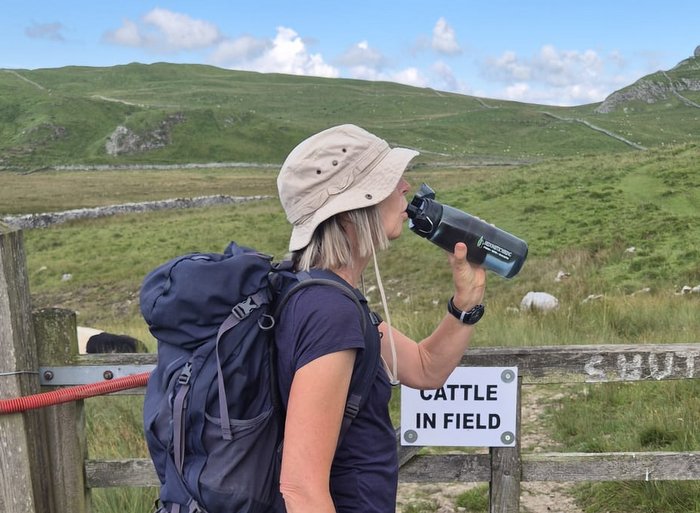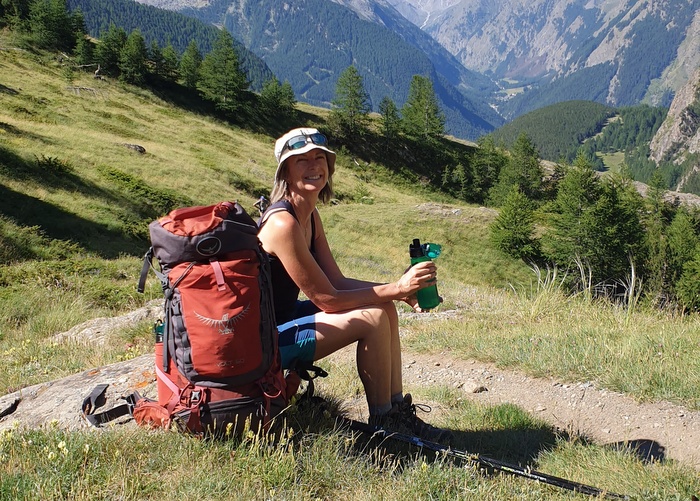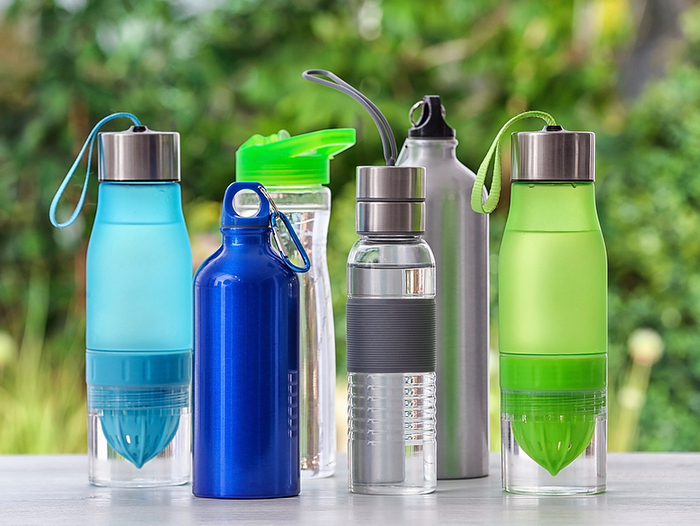Staying hydrated while hiking is essential for maintaining energy, regulating body temperature and preventing heat-related illnesses. When you’re out on the trail, especially in warm or high-altitude environments, your body loses fluids more quickly than usual through sweat and respiration. Dehydration can lead to fatigue, headaches, dizziness and even more serious complications such as heat stroke. Drinking small amounts of water regularly throughout your hike helps ensure your body stays properly hydrated and can continue functioning at its best. We occasionally meet hikers who are reluctant to drink too much because there are no rest-rooms along the trails, but this is an ill-advised approach and you will pay a penalty for being dehydrated.

Our best advice is to start hydrating well before the hike (even the night before) and ensure you drink plenty in the morning before setting off so you don’t start the day thirsty. Continue sipping water throughout the day, even if you don’t feel thirsty. Remember that staying hydrated isn’t just about water intake during the hike—it’s part of a bigger preparation strategy to keep your body safe and performing well in the outdoors. We also recommend hydration salts (electrolytes) as they replenish lost fluids and salts much more quickly than by drinking water alone. They come in convenient sachets to mix with water making them portable and easy to use. We also always carry a selection of sweet dried fruits and salty nuts to share with the group at points along the trail.
All Hedonistic Hikers on our European tours are given a BPA-free plastic 700 ml water bottle to use on the trip and to keep at the end. However, we highly recommend that you carry an extra supply of water, and this is imperative on our Level 4 and Level 5 hikes where there might not be van access at lunchtimes to replenish. Be sure you are clear about whether there are longer days in your itinerary with hiking picnics, where extra water will be required and may not be readily available. We always give a detailed description of the next day’s walk and can tell you if and when there are opportunities to fill up. The seasonal temperatures, the altitude and the length of the hikes will all have a bearing on how much you should carry, and we would recommend at least 2 litres for a full day’s hiking.

We try very hard to encourage our hikers not to add to the global plastic mountain. There are many sustainable solutions to carrying water efficiently and comfortably so, in addition to your Hedonistic Hiking bottle, you might consider:
Hydration Reservoirs (Bladders)
Hydration bladders are one of the most popular choices for hikers who want easy access to water while moving. These reservoirs fit into your backpack and feature a long drinking tube that allows you to sip water without having to stop or remove your pack. They’re lightweight, carry a decent amount of water, and help you maintain a steady pace since you can drink hands-free.
Collapsible Water Bottles
If weight and pack space are your top priorities, collapsible water bottles are a great option. These bottles flatten when empty, allowing you to roll them up and stash them in a small corner of your pack. They’re lightweight, durable, re-usable and easy to store. Make sure they are BPA-free.
Stainless Steel or Aluminium bottles
A metal water bottle with a carrying strap or pouch offers an efficient way to carry water while on the trail. Stainless steel or aluminum bottles often come with carrying handles or straps that allow you to keep the bottle easily accessible by clipping it to your gear or strapping it to your shoulder. These are a strong, durable option for carrying extra water.
Water Filter Bottles
For longer treks or wilderness hikes, water filter bottles allow you to refill from natural water sources safely. These bottles have built-in filters that remove bacteria, parasites and other contaminants, making them ideal for hiking in more remote areas. They save you the trouble of carrying large amounts of water but are still lightweight and portable.

All good outdoor shops will offer a range of sustainable solutions and we highly recommend you have this organised before joining the hike. More often than not there is no access to outdoor equipment stores once the tour is underway. Please don’t hesitate to get in touch if you have questions or concerns about this.
